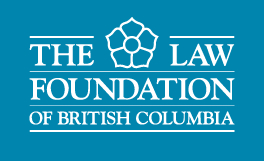Law Menu
Community Legal Clinic
TRU CLC will be closed from Noon on December 24, 2024, until January 9, 2025 to facilitate our move to our new clinic site at 601-235 1st Avenue.
Community Legal Clinic
The Thompson Rivers University Community Legal Clinic (TRU CLC) is the first student-staffed free legal clinic in the BC Interior. The students work under the guidance of a team of supervising lawyers to provide legal assistance and advice in a range of areas to those who would otherwise be unable to afford legal assistance.
The program enables students to use the law as a tool for social justice by working with agencies and local non-profit organizations to improve citizens' access to the justice system, while the students develop skills that will make them better lawyers in the future.
TRU CLC is open weekdays from 9 a.m. to 4 p.m. throughout the year when classes are in session at TRU. Please call 778-471-8490 to book an appointment. TRU CLC does not allow drop-in interviews at this time.
Who can use TRU CLC?
The service is free and to be accepted for ongoing representation, clients must meet low-income financial eligibility requirements. As well, a law student will conduct an initial interview to determine eligibility based on the nature and scope of the client's issue.
What types of issues can we help with? TRU CLC can represent clients in various legal areas, including:
- residential tenancy;
- employment standards;
- small claims (civil claims under $35,000 only);
- human rights claims; and
- some criminal charges in Provincial Court.
We can also draft certain types of legal documents, including:
- simple wills for estates that are worth less than $25,000 and do not contain real property;
- powers of attorney;
- representation agreements;
- advance directives;
- notices of claim and replies to claim (small claims under $35,000 only); and
- documents for uncontested desk order divorces; and financial statements for use in Provincial Court or Supreme Court
TRU CLC cannot assist with:
- family law litigation;
- business and commercial law;
- real estate and strata matters;
- personal injury claims;
- issues arising from unionized employment;
- probate or administrative matters;
- any matters within the jurisdiction of a superior level court;
- impaired driving or traffic offences; and
- complaints against dentists, doctors or lawyers.


